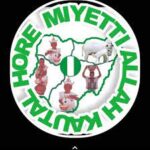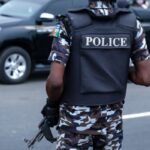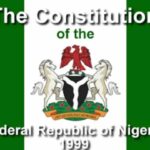I rhetorically ask whether Nigeria has really attained nationhood with the myriad of problems that is bedevilling it? Will restructuring resolve all of these problems? If so, why then is the restructuring campaign not making any appreciable headway? Yes, Nigeria has attained high level of nationhood, but with also high level of unresolved problems. Yes, restructuring can help resolve many of these problems if properly conceived, propagated, accepted and implemented. And, unfortunately, the restructuring campaign is not making any headway because of the methods and strategies of its pursuit.
Surely, I believe we have attained a high level of nationhood even though we still have some issues to resolve. But then, no country in the world is without problems. Even in the UK, Brazil, India, Australia, Russia, Canada, etc. there are separatist tendencies. That does not mean that they have not attained a high level of nationhood. But still there are fundamental structural issues bedevilling the country. Central of these issues is the imposition of an “unjust dysfunctional federal structure” on the country that is inequitable and exploitative.
- Nigeria needs competent managers to tackle insecurity — Diri
- CBN faults Senate over allegation of unremitted operational surpluses
However, it is generally agreed that the federal structure under the 1960 Independence Constitution was majorly satisfactory to all parts of the country; as under that system the regions and their ethnic groups were all controlling their resources and developing at their own paces. Then the military struck, and everything came crashing; the federal structure was abolished and a unitary system imposed. And when the same military wanted to hand over power they put in “a little of federal and a little of unitary democratic structures.” And since then Nigeria’s political debates and struggles have been between the “federalists” and the “unitarists”; taking ethnic, religious and sectional tides; depending on who is in power.
But the major problem is that ethnic and religious extremists have hijacked the politics of restructuring on both the sides of proponents and opponents. This is now threatening Nigeria’s nationhood and paradoxically making restructuring objectives difficult to achieve.
The religious extremists are mainly in the North and the ethnic extremists mainly in the South. Over time, the views and actions of these two extreme groups have driven and complicated the politics of the country no matter who is in power. This key problem has exacerbated whatever structural defects there are in the country.
This is not all. While religious extremists raise armed revolts, ethnic extremists conceive and propagate jaundiced diabolical ethnic narratives to create tension. It did not start with President Muhammadu Buhari (though it has heightened in his time), but we pray it ends with him.
Now, let us consider some points as examples. First, the accusations being levelled against President Buhari on the so-called “Islamising and Fulanising Nigeria”. To me, this is nothing but a stunt of the ethnic extremists. The recent happenings in Kano and other facts demonstrate the fallacy of such accusation. There is no way, for example, that Governor Abdullahi Ganduje would have balkanised Kano Emirate and deposed the emir without a tacit approval of the presidency. Kano is the most populous, wealthiest and most influential emirate within the Sokoto Caliphate; itself the key symbol of Islam and Fulbe identity in Nigeria. How could one aim to “Islamise and Fulanise” Nigeria by destroying the very foundations of these identities? It does not add up.
Also, when I conceived the idea and, along with many others, subsequently organised the bicentenary celebrations of the Sokoto Caliphate in 2004, which turned out to be the largest mobilisation of people and dignitaries in the history of this country, except probably FESTAC 77, Muhammadu Buhari is the only former Nigerian leader I did not see attend any of the ceremonies even though he was in town and was duly invited. That does not look like a man who is keen on Fulanising and Islamising Nigeria! Also, as a young military head of state, it would have been easier for Buhari to push forth his agenda if he really had any than now as an old man presiding over a constitutional democracy.
Second, ethnic extremists situate all the problems of the country on ethnicity. Without any justification, they single out the Fulani as the major culprits in the failure of the Nigerian state. But the introduction of military rule, which we all agree to be the single major cause of Nigeria’s structural dislocation, was not committed by the Fulani. The abolishment of the federal structure and imposition of unitary system was not done by the Fulani. The systematic removal of fiscal federalism and introduction of centralised command of resources was done between 1967 and 1974; it was not done by the Fulani. The promulgation of dysfunctional “federal/unitary” presidential democratic constitution in 1979 was not done by the Fulani. The retention of the “dysfunctional system” in 1999 was not done by the Fulani. In all these the Fulani were not anywhere at the “crime scene”. Is this not being unfair to the Fulani and unhealthy for our country’s democracy and politics? It is such demonisation that led to the 1994 genocide in Rwanda.
Third, extremists consciously, deliberately and systematically distort historical facts in order to advance their political and economic self-interests, and we all are to accept their narratives as right. They set in motion a process leading their hearts to be diseased against the Fulani; programming society to see no good in the Fulani; and taking it upon themselves to propagate jaundiced beliefs that the Fulani are naturally evil and lazy.
For example, more than 70 per cent of Nigerians depend on the pastoral Fulani for meat, milk, cheese, butter, manure, incense, hides and skins, etc. In the villages, especially Northern villages, the Fulani provide the bulls used for carting, plowing, and hauling. Thousands of Nigerians across the country also wholly or partly make their living from selling, milking, butchering or transporting herds. The government earns revenue from cattle trade and from cattle tax.
Resolving the recent grazing problem requires settling the Fulani in ranches, organising and facilitating animal feeds industries and water treatment plants. If this is done the perennial issue of insecurity will be resolved, at least that of the farmers/herders conflict. But the anti-Fulani extremists would have none of it; no any solution to Fulani issues is worthy enough of consideration.
Yes, restructuring can help solve many of these problems. But this dangerous and unfair ethnic profiling and demonisation of the Fulani, more than any other thing, remains a huge debilitating obstacle to the drive, and so long as those propagating such narratives are the champions of restructuring, then restructuring will remain suspect before the Fulani.
The earlier all Nigerians cleanse their hearts of such religious and ethnic vices the better for us all and for the country. We must all be confident that the motives of restructuring is not enmeshed in ethnic and sectional hate and malice. For us to achieve restructuring, we must treat one another with truth, understanding, decency and respect. This point is very important in the success of the campaign for restructuring the country.
Ardo lives in Abuja
 Join Daily Trust WhatsApp Community For Quick Access To News and Happenings Around You.
Join Daily Trust WhatsApp Community For Quick Access To News and Happenings Around You.


